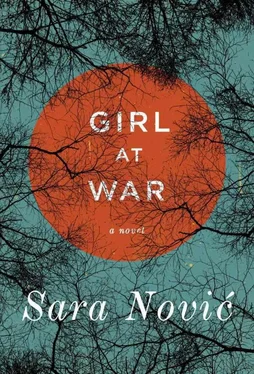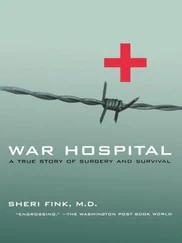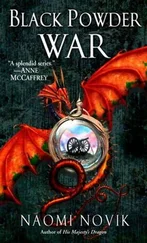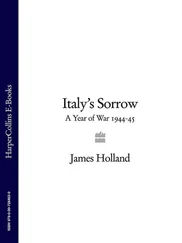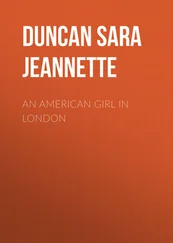“But it’d be better if I could protect the country, no?”
“I’m glad you can’t go.”
My father bent to kiss my forehead. “Well, I would miss you, I suppose .” The lights flickered, then went out. “All right, all right, she’s going to bed!” he said to the ceiling, and I giggled. He went into the kitchen and I heard him bumping around in search of matches.
“In the top drawer by the sink,” I called. I switched off the lamp in case the electricity came back in the middle of the night, and willed myself to sleep amid the sudden silence of our flat.
—
As a side effect of modern warfare, we had the peculiar privilege of watching the destruction of our country on television. There were only two channels, and with tank and trench battles happening across the eastern counties and JNA ground troops within a hundred kilometers of Zagreb, both were devoted to public service announcements, news reports, or political satire, a burgeoning genre now that the secret police were no longer a concern. The anxiety that arose from being away from the television, the radio, our friends’ latest updates, from not knowing, panged our stomachs like a physical hunger. The news became the backdrop to all our meals, so much so that televisions lingered in the kitchens of Croatian households long after the war was over.
My mother taught English at the technical high school, and she and I arrived home from our respective schools around the same time, I dirt-streaked and she fatigue-stricken and carrying Rahela, who spent the school days with the old woman across the hall. We’d turn on the news and my mother would hand Rahela off to me while she wielded her wooden spoon to create another meal from water and carrots and chunks of chicken carcass. I’d sit at the kitchen table with Rahela on my lap and tell them both what I’d learned that day. My parents were strict about school — my mother because she had been to college and my father because he hadn’t — and my mother would interject questions about my times tables or spelling words, little quizzes after which she sometimes rewarded me with a bit of sweet bread she hid in the cabinet under the sink.
One afternoon an extra-large block of special report text caught my attention and I let my account of the day’s lessons trail off and turned up the television. The reporter, pressing on her earpiece, announced there was breaking news, uncut footage from the southern front in Šibenik. My mother darted away from the stove and stood behind me to watch:
An unsteady cameraman jumped a ledge to get a better view as a Serbian plane spiraled toward the sea, its engine on fire and blending with the late September sunset. Then to the right, a second plane ignited in midair. The cameraman spun around to reveal a Croatian antiaircraft soldier pointing incredulously at his handiwork saying, “Oba dva! Oba su pala!” Both of them! They both fell!
The oba su pala footage played on both television channels for the remainder of the day, and continuously throughout the war. “Oba su pala” became a rallying cry, and whenever it appeared on TV, or when someone yelled it on the street or through the walls at the Serb upstairs, we were reminded that we were outnumbered, outweaponed, and we were winning.
That first time we saw it, my mother and I together, she patted my shoulder because these men were protecting Croatia and the fighting didn’t look too dangerous. She smiled and the soup steamed, and even Rahela wasn’t crying for once, and I allowed myself to slide into the fantasy I recognized as such even while my mind was still spinning it — that there in the flat, with my family, I was safe.
“There is no way a doctor is going to see us on a Saturday,” my father said. My mother ignored him and continued filling her purse with bread and apples.
“Dr. Ković already called her. She knows we’re coming.” Rahela had been vomiting for two weeks, the second of which my mother had spent taking unpaid sick days from school to navigate the complex web of Communist healthcare — bouncing from doctor to doctor, receiving one referral, then the next, this doctor open only on Wednesdays, that one only Tuesdays and Thursdays, from one to four. They had run blood tests, taken X-rays (one doctor to take the X-rays, another to read them), tried bottle-feeding Rahela with a special formula that was expensive and nearly impossible to get. She’d only gotten skinnier, and my parents now stayed awake through the night, taking turns holding her upright so she wouldn’t choke on her own vomit.
“But Slovenia, Dijana. How are we going to pay for it?”
“Our daughter is sick. I don’t care how we are going to pay for it.” I carried Rahela out to her car seat.
In Slovenia there’d been a ten-day war. They didn’t share a border with Serbia or have full access to the sea; they weren’t the wrong ethnicity. Now Slovenia was a free country. A separate country. We passed through the desolate fields of northern Croatia and my father slowed as a Slovenian police officer waved us toward a makeshift customs booth, hastily constructed to mark the new border. My father cranked down the window and my mother dug through her purse for our passports. In winters past we’d come to Slovenia to spend the day in Čatež, an indoor water park just over the border. Strange, I thought, to need a passport to go swimming. The policeman licked his thumb and flipped through our documents.
“What’s the purpose of your visit?”
“We’re visiting cousins,” my father said. I wondered why he didn’t just tell the truth.
“How long will you be staying?”
“Just for the day. A few hours.”
“Right,” said the officer, smirking. I remembered the inky square stamps we’d gotten when we’d driven to Austria once, but the man just scribbled something in pen in each of our passports and motioned us through.
Unsure of what to expect from a whole new country, I was disappointed to see that Slovenia looked the same as I remembered it, looked the same as Croatia did in the rural parts outside of Zagreb — flat and blank and grassy against a backdrop of mountains that never seemed to get any closer.
“You know I don’t care about the money,” my father said, cracking the silence he’d been keeping since we’d left the house.
“I know.”
“I’m just worried.”
“I know.”
My father took my mother’s hand and kissed the inside of her wrist. “I know,” she said.
As we approached the capital, the population thickened, a dense buildup of houses clustered around the city. At its core, Ljubljana looked like a smaller, squatter version of Zagreb, except the river ran right through the town center rather than along the edge. The difference between Croatian and Slovenian was exasperatingly mild, the storefronts and street signs filled with words that looked familiar but not quite right, rendering comprehension just out of reach.
“This is not a doctor’s office,” my father said when my mother instructed him to turn down an unmarked alley. He was overarticulating the way he did when he was frustrated.
“That’s it.” My mother pointed to a second-floor flat with a red cross taped to the front door. My father parked the car in front of a fire hydrant.
—
“Good afternoon,” a woman said in English, ushering us inside. “I’m Dr. Carson.” I’d studied English since the first grade but considered it a murky language, one whose grammar seemed to have been made up on the fly. Still, I resolved to concentrate and pick up as much as I could. Dr. Carson shook my parents’ hands, hard. The door of her flat opened directly into the living room, and she led us to her sofa, a fixture too big for the room and covered in pilling floral throw pillows. Black-and-white photos of sickly children being hugged by toothy American doctors hung poster-size on all walls. MEDIMISSION, said the posters in block lettering beneath the photos, followed by an assortment of uplifting slogans about children and miracles and the future.
Читать дальше
